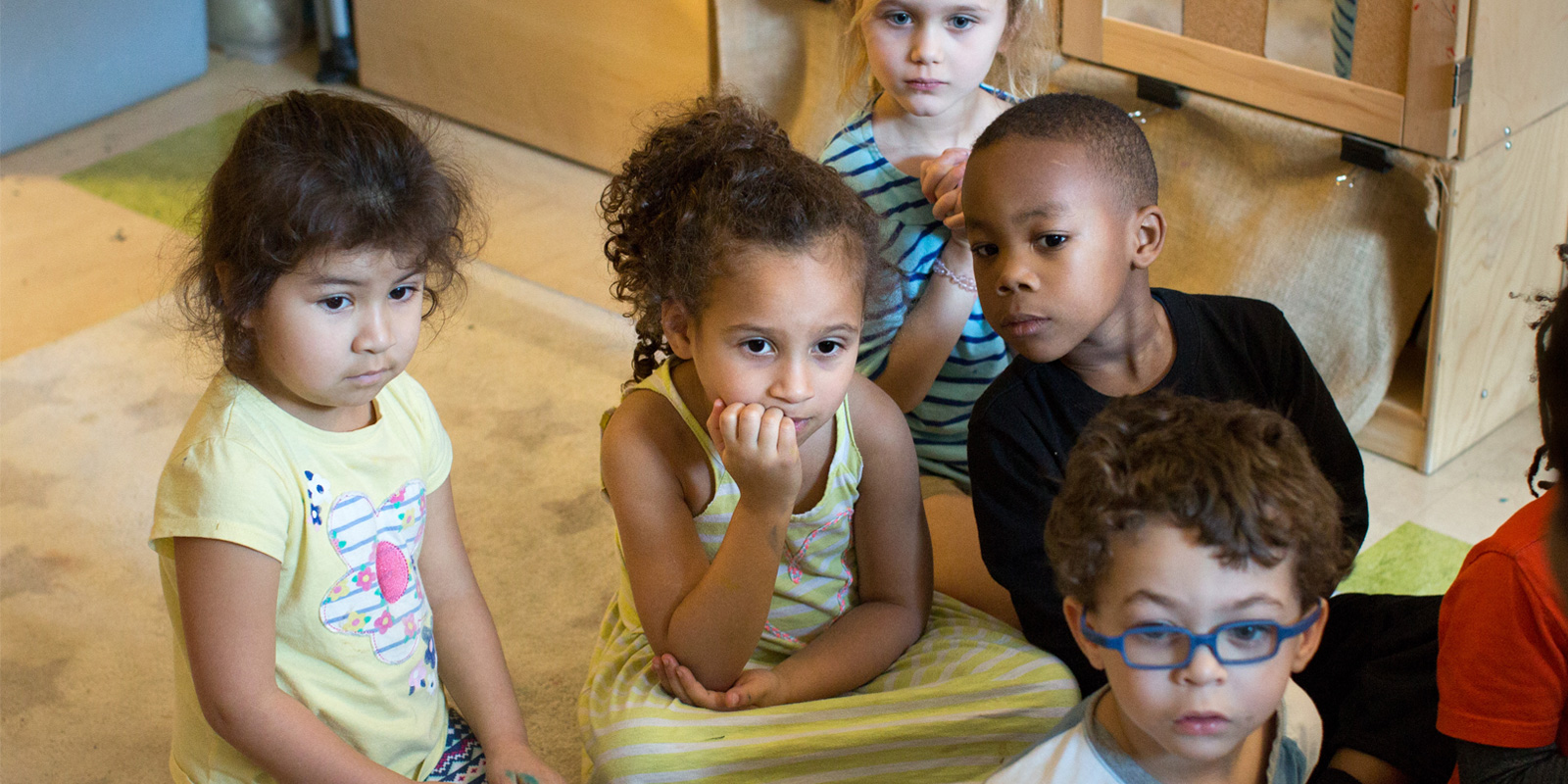Author’s Note: This moment, when the world has stopped spinning on its axis, presents an important opportunity to re-examine our society’s early childhood axioms. In this essay series I will examine four key early learning topics and the extent to which our current policies do or do not line up with the research base.
Yet is this all necessary? What does the mysterious phrase “school readiness” even mean? Though rarely remarked upon, what we consider school readiness in 2020 is rather different than how the term was originally conceived. In short, we have narrowed readiness into a limited focus on what a young child knows or can do, and we have set up readiness as a binary outcome instead of an ongoing process. On both of these counts, the U.S. is now askew from the science of early learning.
Modern ideas of school readiness first emerged in 1989 as part of the National Education Goals Panel. Convened by President George H.W. Bush amid growing fervor for educational improvement spurred by the A Nation At Risk report, the Panel’s first goal stated simply: “All children in America will start school ready to learn.” This brief sentence led to much controversy. Early learning luminary Samuel J. Meisels, founding executive director of the Buffett Early Childhood Institute and someone deeply involved in these first conversations, wrote in 1998 of the types of questions which arose:
“Some pointed out that all children are ready to learn from birth. They need not wait until they are five years of age to be ‘ready to learn’. Others pointed out that the goal ignores individual differences in learning. It will never be the case that all children will attain the same level of performance at a single culturally defined point in time. Individual differences and variations in development associated with both endogenous and exogenous factors make a mockery of our chronological benchmarks when we try to apply them across the board to all children.
Moreover, the term ‘readiness’ is conceptually confusing. Is ‘readiness’ something we wait for? Is it something we impose? Is it a within-the-child phenomenon or something outside the child? Finally, the simplistic or mechanistic interpretation of readiness that can be derived from the goal contains within it the potential for encouraging policies harmful to young children. In an educational world that is oriented toward efficiency and accountability, it is easy to imagine that someone will be penalized if we … find that some children are not ready for school. Often, the least advantaged in our society are blamed when public policies intended to assist them go wrong.”
Sadly, Meisels’ premonition has largely come to fruition. Today, half of states have a version of a Kindergarten Readiness Assessment. Children of color and children from low-income backgrounds are far more likely to be labeled as behind and in need of intervention before ever starting their formal schooling. Increasingly, developmentally inappropriate academic expectations are being pushed down into early childhood, often at the expense of critical elements like play.
Again, one need only look at the suggested schedules for young children stuck at home to realize how deeply a narrow view of school readiness has taken hold, and how little we now reflect on the tensions and questions around readiness. Whereas Meisels posited there were four main philosophies around school readiness [SEE SIDEBAR], our culture is now dominated by one: what Meisels would call the ‘Empiricist’ view. “Fundamental to this view,” he wrote, “is the belief that readiness is an absolute state of affairs — an end point that children and teachers can strive for — and that the criteria for readiness are stable and universal.”
Idealist/Nativist: “Development is only marginally influenced by external forces; endogenous factors control behavior and learning, which are closely linked … in short, the idealist/nativist perspective on readiness holds that children are ready to learn when they are ready. We can do little to accelerate this process.”
Empiricist/Environmental: “[T]his view reflects an externally driven approach to development …Read more…
There was one other opportunity to turn the ship around. In the early 2000s, a group of 17 states and several philanthropic foundations came together to create the National School Readiness Indicators Initiative. This group advanced an ‘Interactionist’ approach, positing that the equation for success was “ready families + ready communities + ready [health care and child care] + ready schools = children ready for school.” This formula demonstrates that readiness is multifaceted, that the ecosystem of relationships and services in which a child exists and the child’s own predilections are interwoven threads that cannot be unwound.
Unfortunately, such nuance was swamped under the accountability wave of the No Child Left Behind era, or what University of Virginia Education Dean Robert Pianta has called the “educationalization of early care and education.” We have instead zeroed in on the child as the unit of change, like examining whether a plant sprouted with no consideration for the status of seed, soil, water, or sun.
What’s to be done? Returning to the comprehensive approach to school readiness laid out by the National School Readiness Indicators Initiative would be a good start. This approach acknowledges the importance of children gaining basic numeracy, literacy and socioemotional skills while suggesting a broader policy agenda for the early childhood sector. Such an agenda might span everything from perinatal care to lead abatement to directly stabilizing family income through items like a child allowance. This broad perspective also suggests that instead of pushing developmentally inappropriate practices down into early childhood, we should thread early childhood best practices up through the early elementary grades (Boston is a national exemplar on this count). And it clearly means we must pay early childhood educators well while providing universal, high-quality early care and education options.
The other needed revival is an understanding of readiness as a process, not a light switch that’s either set to ‘ready’ or ‘not ready’. If we embrace readiness as a context-dependent process, then we can release our increasingly tight grip on young children’s learning. It allows us to center our policies around relationships instead of products. Consider that in high-performing Finland, their national early childhood goals don’t mention literacy or numeracy; instead, they focus on the “promotion of personal well-being; reinforcement of considerate behavior and action towards others; and gradual build-up of autonomy.”
To be clear, knowing a young child’s skill level is not inherently problematic. There are positives to our current approach in terms of enabling more individualized instruction and feedback loops between elementary schools and early learning programs. Left unchecked, however, a narrow and binary view of readiness leads down dangerous policy and cultural paths, as we are witnessing today. With most of America’s young children home for the next couple months, now is the time to reexamine what we think of as school readiness, and chart a different course for the post-pandemic future.




